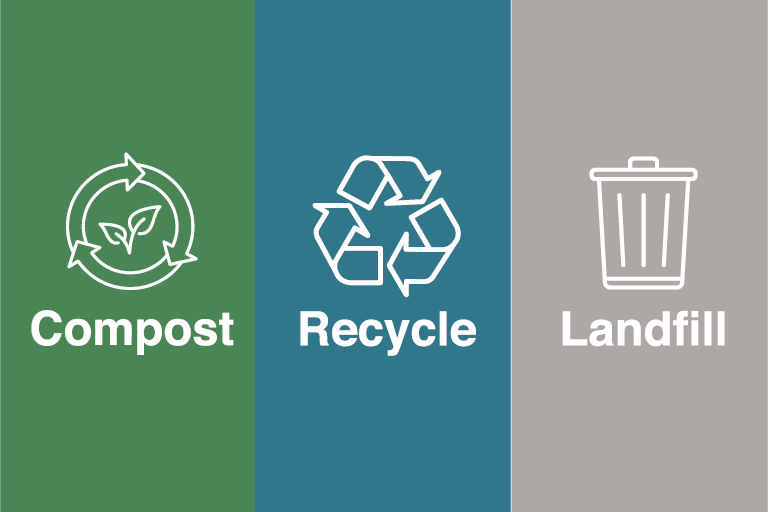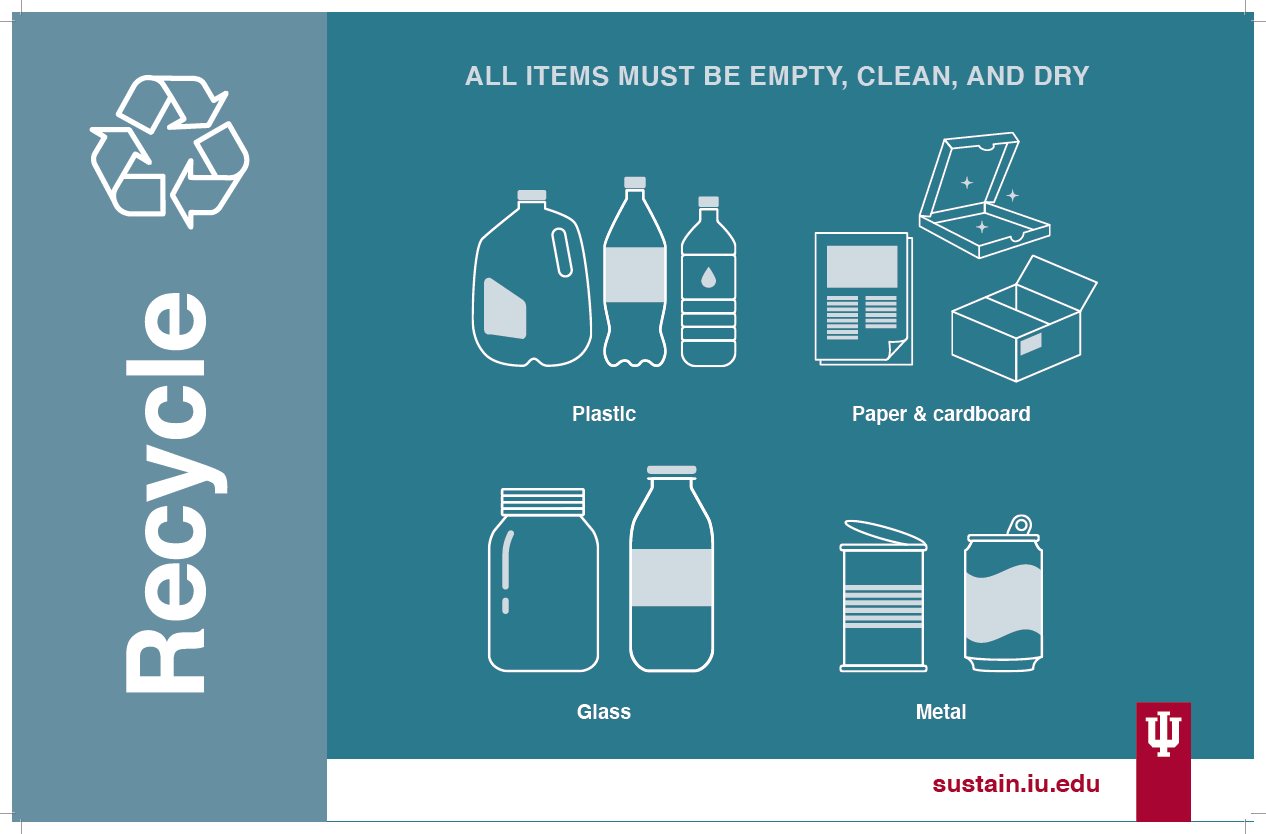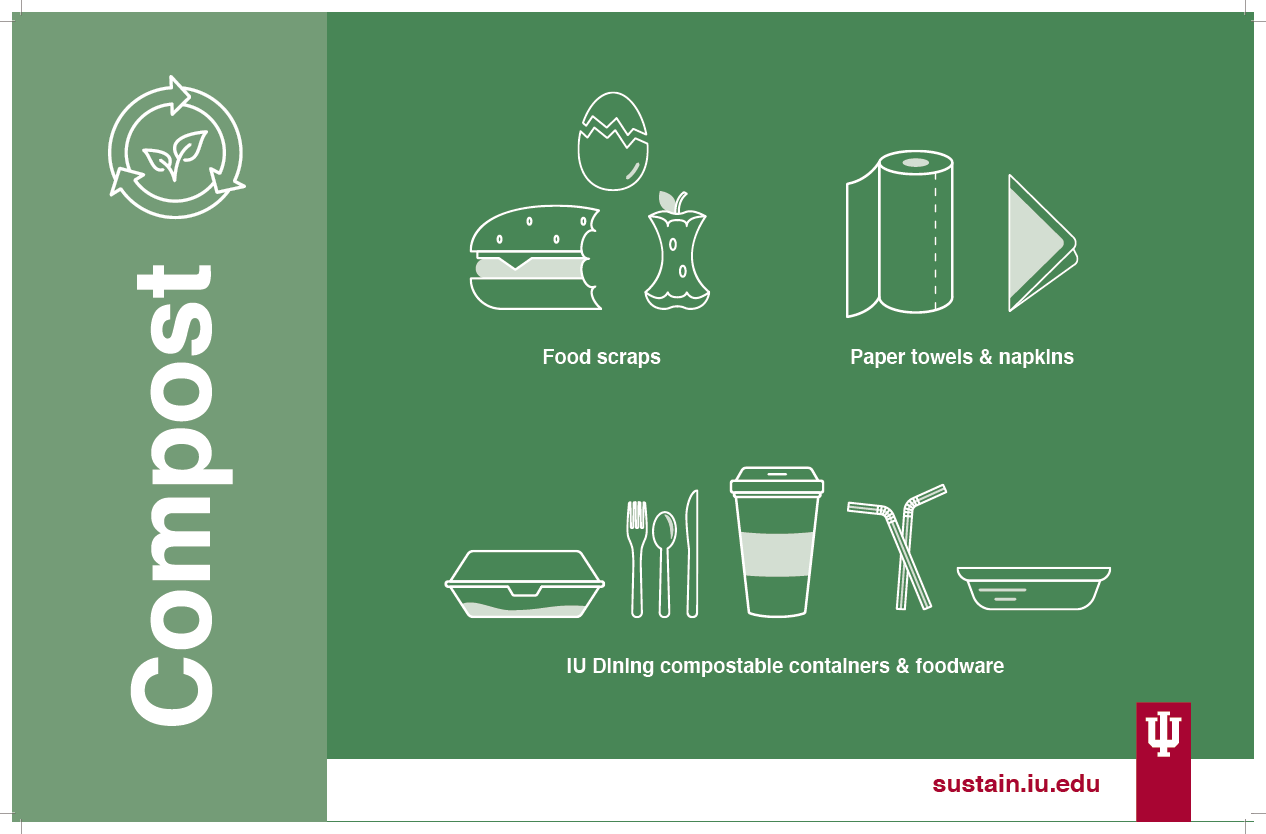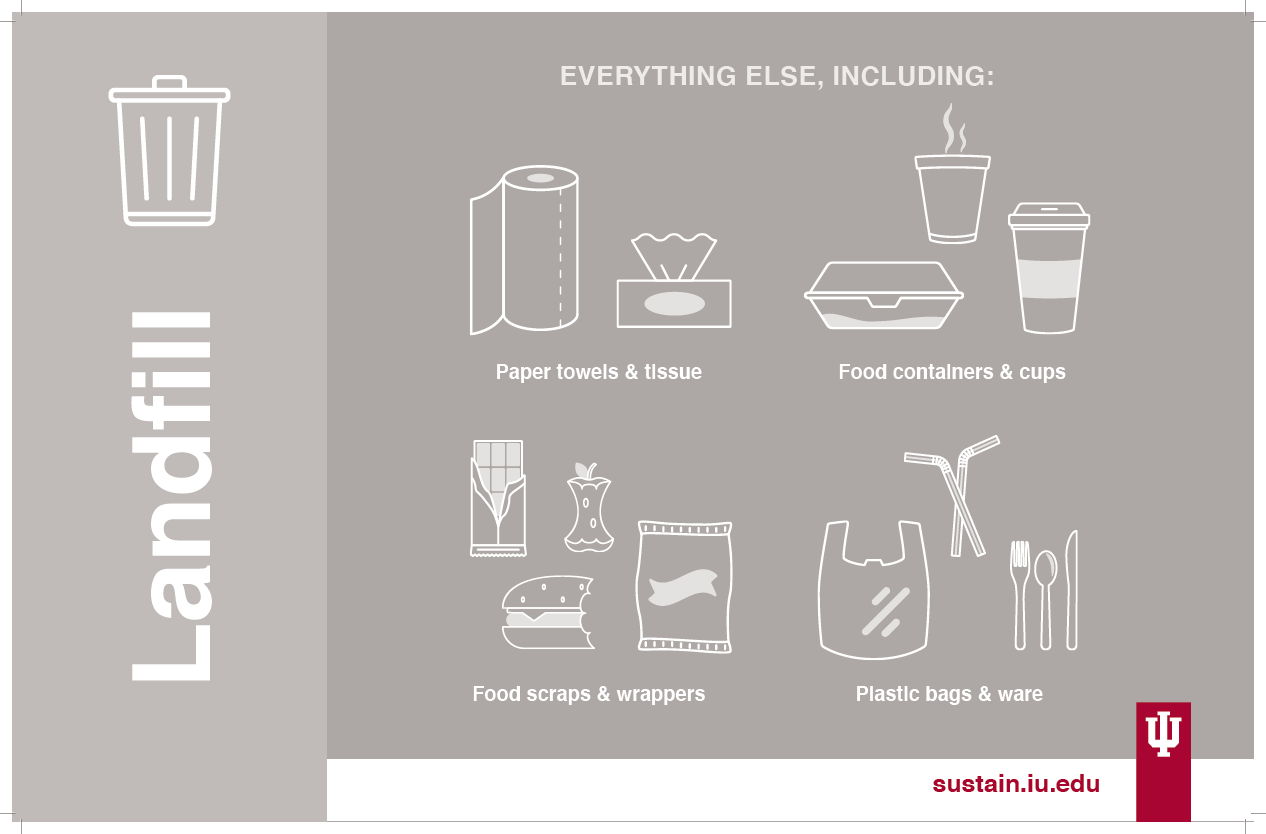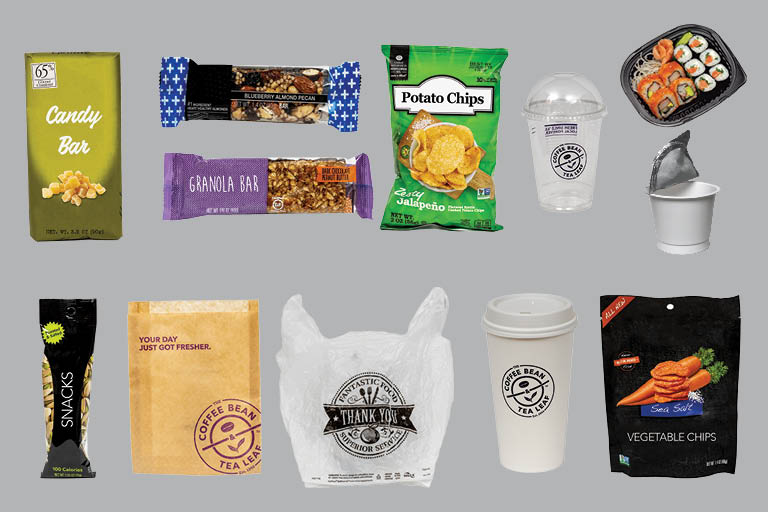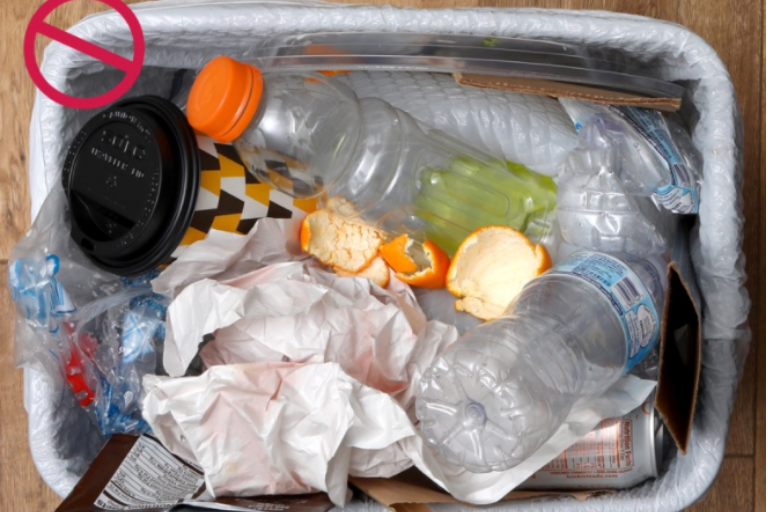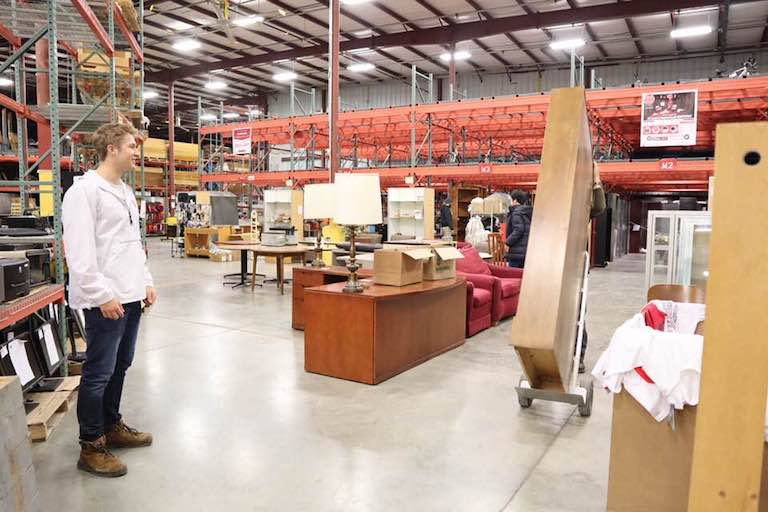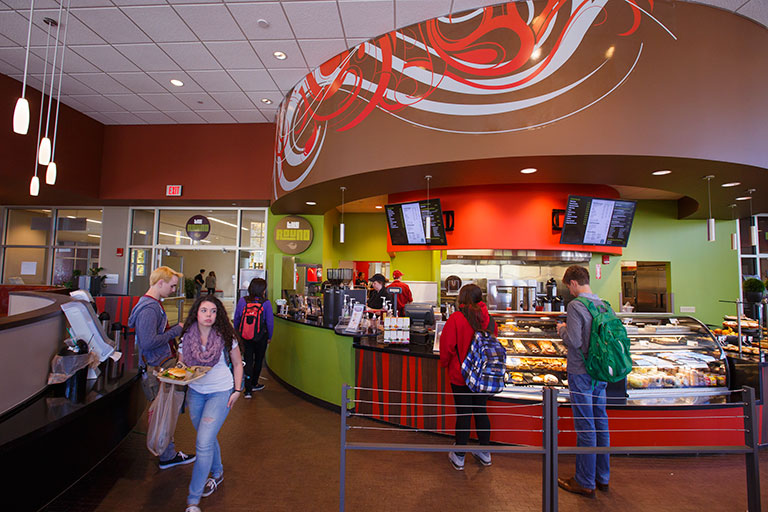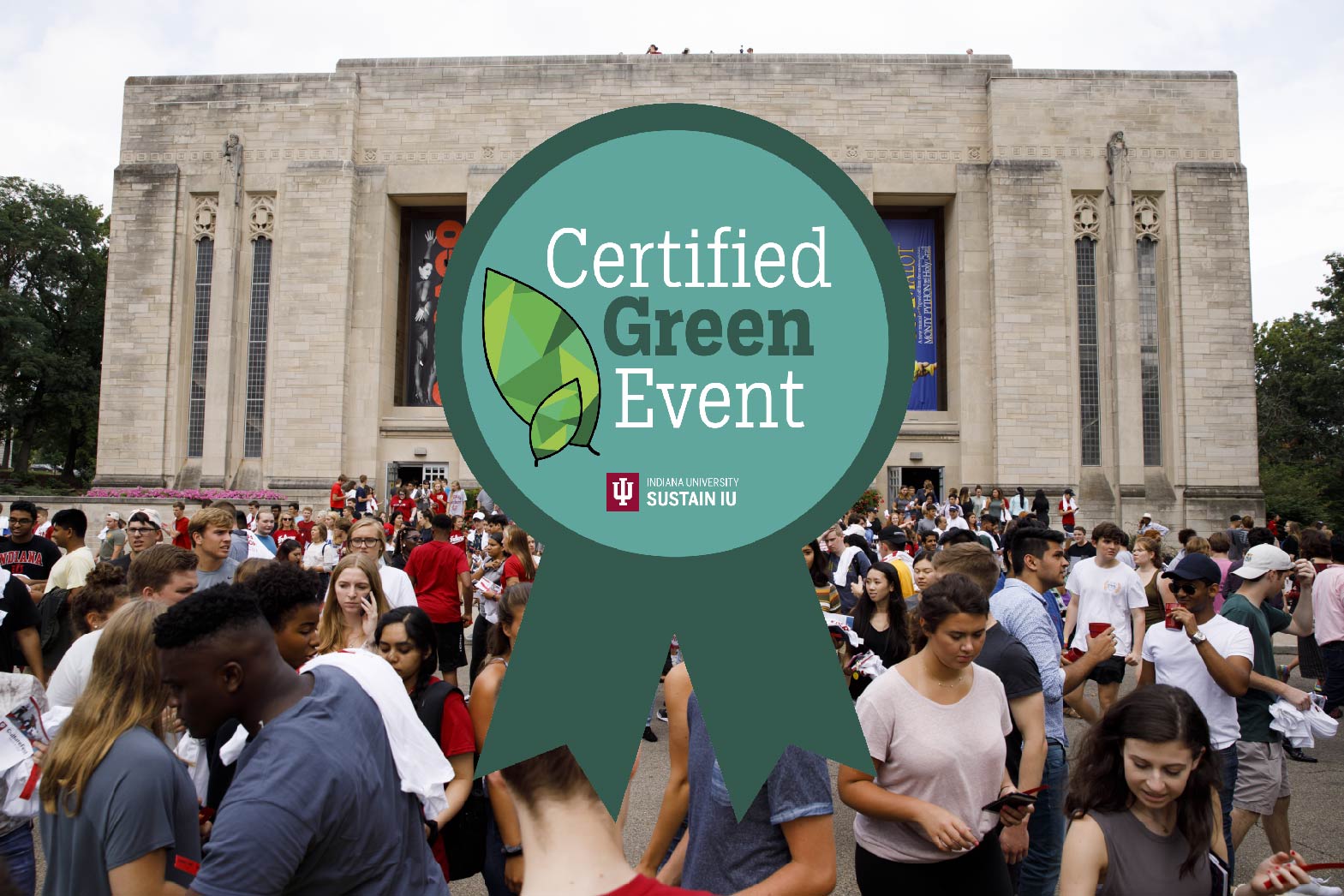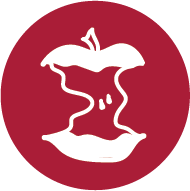Following a waste characterization study completed in 2019, we are implementing strategies from our Sustainable Materials Management Plan to reduce IU's waste footprint. A key component is to institute consistent signage and labeling across campus. For questions relating to the signage rollout schedule or about waste manage in your building, please contact Sustain IU.


